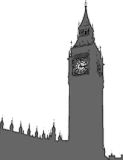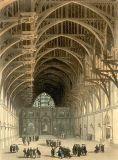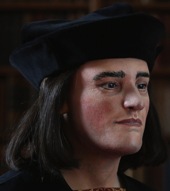 On Thursday, 13 October 2011, an impressive number of people arrived at the New South Wales Parliament House in Sydney, not to watch politicians at work from the Gallery, but to hear Professor Stephanie Trigg from Melbourne University speak on “The Traditional, the Quaint and the Medieval in Australian Parliamentary Practice”.
On Thursday, 13 October 2011, an impressive number of people arrived at the New South Wales Parliament House in Sydney, not to watch politicians at work from the Gallery, but to hear Professor Stephanie Trigg from Melbourne University speak on “The Traditional, the Quaint and the Medieval in Australian Parliamentary Practice”.
There could be no better place to hear Professor Trigg speak than the Parliamentary Theatrette and, warmly welcomed by the hosts, Heraldry Australia, and some delicious refreshments beforehand, we sat back to enjoy a talk delivered with knowledge, humour and expertise.
The illustrated talk invited us to explore the medieval component of parliamentary rituals, objects and traditions, together with the relationship between the medievalism of such objects and practiced and the tradition that remains in Australian parliamentary practice.
The medievalism of course is based on the Westminster parliamentary system, and we were engrossed by the various uniform requirements for officers such as Black Rod and Speakers – some of which have been modified for modern suitability, and the option major figures have now of wearing wigs.
Some marvellous examples of the all important mace were shown, and we enjoyed the description of a makeshift mace made from a plumbing pipe when the correct one had not been finished in time. Even more curious was its mount (a toilet float) and the handles formerly on old shaving mugs. Creativity at work when needs must …
A highlight of the evening was surely the picture of the valued and almost unique copy of the English 1297 version of Magna Carta, bought for Australia from the Kings School in Somerset for £ 2,500 in 1957.
Explanations of various parliamentary roles were given – and apparently they weren’t all safe and sure appointments, considering the amount of Speakers of the English Parliament who were murdered or beheaded in the 14th and 15th centuries.
This was something followed up by Christopher Puplik, the former Senator for NSW (and publicity office for our Branch of the Richard III Society in the 1980s), when he rose to thank Professor Trigg for her presentation that was so informative and inspiring. He told the audience that members of the Richard III Society can relate to the execution of Speakers, remembering William Catesby, beheaded by Henry Tudor immediately after the Battle of Bosworth.
It was a memorable evening, something that didn’t surprise those of us who attended Professor Triggs’ presentation of “Ladies of the Garter” a few years ago, and we look forward to her return to Sydney next year in connection with her book on the Order of the Garter.
Tags: Heraldry Australia, Parliament




